Books
From Tel Aviv to Torah: Oded Mizrahi’s Journey of Faith, Literature, and Truth
How a secular writer discovered spiritual meaning and built a bridge between worlds through storytelling
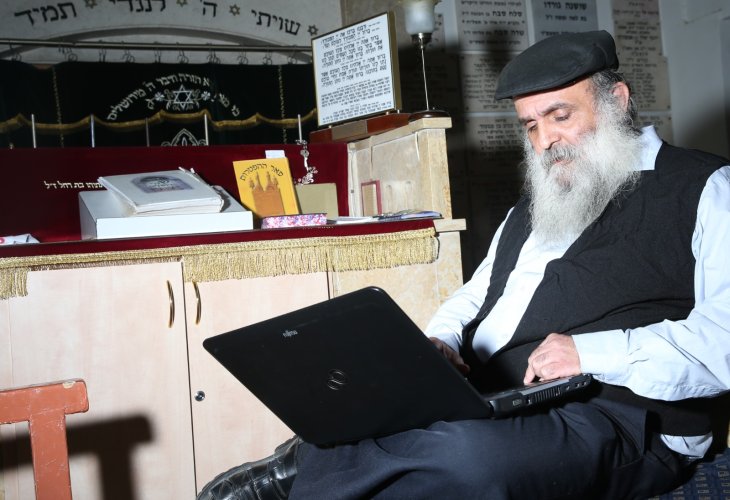 At a synagogue in Nahlaot, Jerusalem
At a synagogue in Nahlaot, Jerusalem“For more than 30 years, Oded Mizrahi has been writing and editing books, publishing stories in newspapers and magazines, all of which share one common theme: faith and drawing closer to the Creator. And yet, when he is asked to talk about himself, he seems to run out of words.
“What is there to say?” he asks simply. “Originally, I’m from Eilat — that’s where I was born and raised. After finishing school, I served in Military Intelligence, and then went on to study literature and cinema at Tel Aviv University. As time passed, I became deeply attached to literature and poetry. I was fairly happy with my life — at least as happy as one can be in such a life, and I saw my future in one of the literary fields: teaching, writing, or academia. Until something unexpected happened — I discovered that the Torah could be true. That never crossed my mind at all, and it completely changed my life.”
A Moment of Truth
When Oded looks back on those days, he is careful to be precise.
“I always knew the Torah existed, but I related to it as something ancient and, to a large extent, irrelevant. I thought people believed because it made them feel good and calmed them. I didn’t believe there could truly be something true in the Torah. When I began to understand its meaning, it fascinated me and opened a door to a wondrous world. Yes, it was intimidating, but more than anything, it gave me enormous hope.
“Until then, I lived with the assumption that truth was what I could see — that reality consisted only of what was visible and perceivable by the senses, and nothing beyond that. Discovering the Torah shattered that understanding. Suddenly I began to realize that reality is not only what we see with our eyes, but also something vast, wondrous, and infinite.”
How did this realization come about?
“The truth is, it was thanks to my friend Micha, who returned to faith before I did. We had one profound, fateful conversation that exposed me to the truth.”
Oded wrote several stories about the personal process he went through — some longer, some shorter. He chooses to quote a brief passage from one of them, which captures what he felt at the time: “Receiving the Torah has no time or place. There is no memory of the infinite light that arrives after countless generations, and its destination cannot be fathomed. World wars, the Holocaust, the establishment of a state, wars alongside prosperity. The light was hidden among dark, exilic angels who clung to it despite everything, alongside their brothers who rolled up their sleeves to fight for independence in the miraculous state. The dark angels lived with the hidden light, guarding it in the ghettos of Jerusalem and Bnei Brak, with a quiet hope that their brothers would desire the treasure when all deadlines had passed. At dawn, I lay stretched out on mattresses with my friends. Then something happened that I will never forget. In my troubled sleep, I began speaking to the Holy One, blessed be He. I was like a dreamer.”
How does it feel to discover the truth?
“Exactly as I described in the story: I was like a dreamer. At first, it was thrilling and astonishing. But very quickly, I began to feel deep uncertainty about what my path was supposed to look like from that point on.
“Forty years ago, it wasn’t common to return to faith and continue living a ‘regular’ life. That period followed the return to faith of Rabbi Uri Zohar of blessed memory and several other well-known figures. I saw clearly that once you returned, your life was expected to change one hundred and eighty degrees.”
Oded pauses thoughtfully. “I used to think that returning to faith in the past was more complicated, but as time goes by, I realize that today’s challenges are no less difficult. Back then, if you started life as secular, there was a 99% chance you’d end it that way — and the same was true in reverse. Today, the boundaries are far less clear, and there is much more room for personal choice. On the other hand, the definitions are blurrier. Truth is no longer black and white; it has many shades, and the choice is yours — to select the precise shade that fits you.”
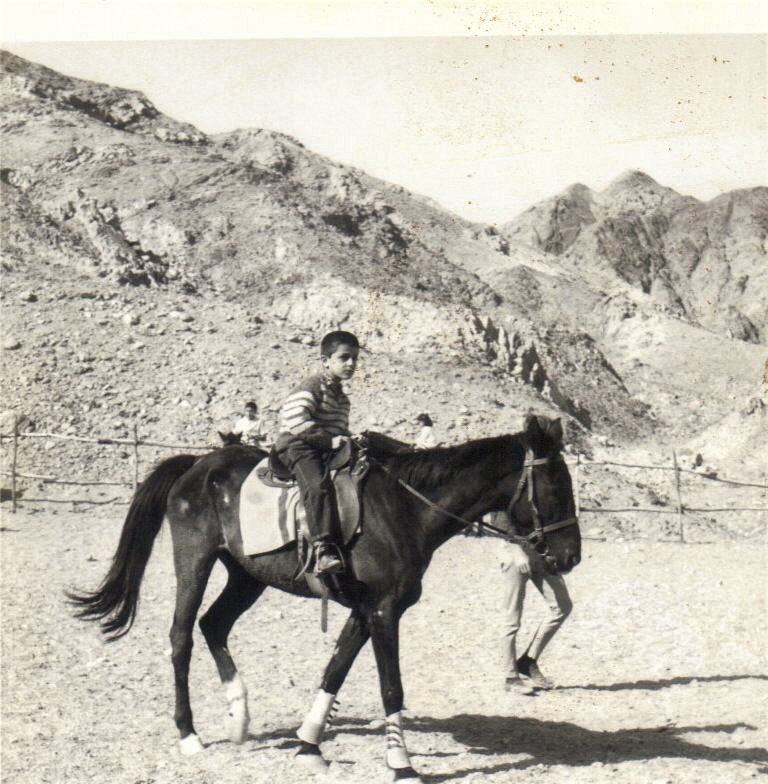 Oded in his childhood in Eilat
Oded in his childhood in Eilat
From Tel Aviv to Mea Shearim
“The moment I encountered the truth, I entered into a fierce inner battle, questioning whether I should even begin the process of returning to faith. At the time, I owned an apartment in Tel Aviv that my parents had given me. I lived there during my army service and university years and could have continued living there for many more years.
“The thought of leaving everything behind and moving to Jerusalem to study in a yeshiva — changing my identity, my essence, even my appearance, felt like suicide to me.
“I struggled intensely. The more I thought about what was being demanded of me, the more torn apart I felt. The idea of turning from a Tel Aviv university student into a Breslov Hasid in Mea Shearim was extreme. And since I couldn’t do something I didn’t feel whole and aligned with, I continued with my routine life and my university studies.”
Oded began his third year studying literature, enrolling in a course on the poet Chaim Nachman Bialik.
“Then something interesting happened,” he recalls. “I began the course and suddenly discovered how many concepts from Torah, Kabbalah, and Hasidism appear in Bialik’s poetry. I was stunned to realize that although the poet distanced himself from the study hall, his poetry was saturated with Torah.
“And then another realization struck me: as a Jew, there is no real way to escape the Torah. It’s part of you. You can be for it or against it, but there is nothing else. I also see this in the long-standing struggles between different sectors in Israeli society — the Torah has always been at the center. Some wanted more Torah, some wanted less, but as Jews, this is the subject that defines our lives.
“I understood that if I was going to engage in literature, my writing would have no real value if I didn’t know what Judaism is. The idea matured within me, and after a few months, I made a calm, conscious decision: I was leaving everything, stopping my studies, and going to learn Torah.”
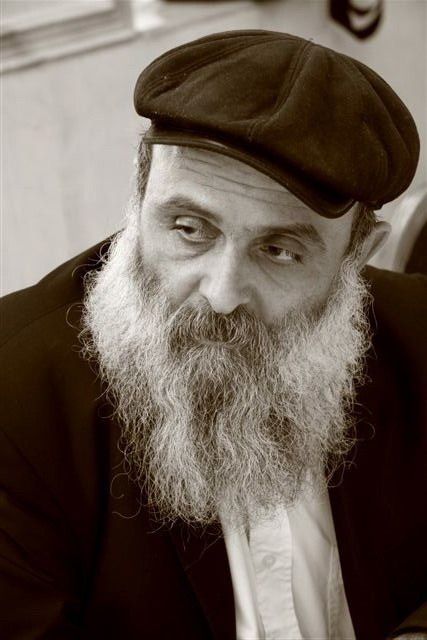 Oded Mizrahi
Oded Mizrahi
A Writer Who Would Not Be Put in a Box
Oded chose Breslov Hasidism in Mea Shearim, where he moved between several streams. Later, he explored other Hasidic paths and also connected with Chabad and various rabbis.
“I don’t label myself or put myself in a box. Over the years, in my editorial work, I’ve worked with very diverse rabbis. I’m happy about that and feel a deep connection to every sector of the Jewish people.”
Looking back on your journey, is there anything you would have done differently?
“Of course. If I knew then what I know today, I would have done many things differently. I now understand that my process of returning wasn’t always accurate or balanced. There were very important areas of my life that I didn’t always give the attention they deserved, because at the time I was focused mainly on the pressure to fulfill commandments.
“If I could go back, I’d be more forgiving and patient with myself. But I had no guidance — and most people returning to faith back then had no guidance. Those who were wise figured things out on their own, but you had to be very honest and brave to serve God. Still, I don’t regret anything I experienced. Today I understand that God wanted me to go through everything I went through, including the mistakes.”
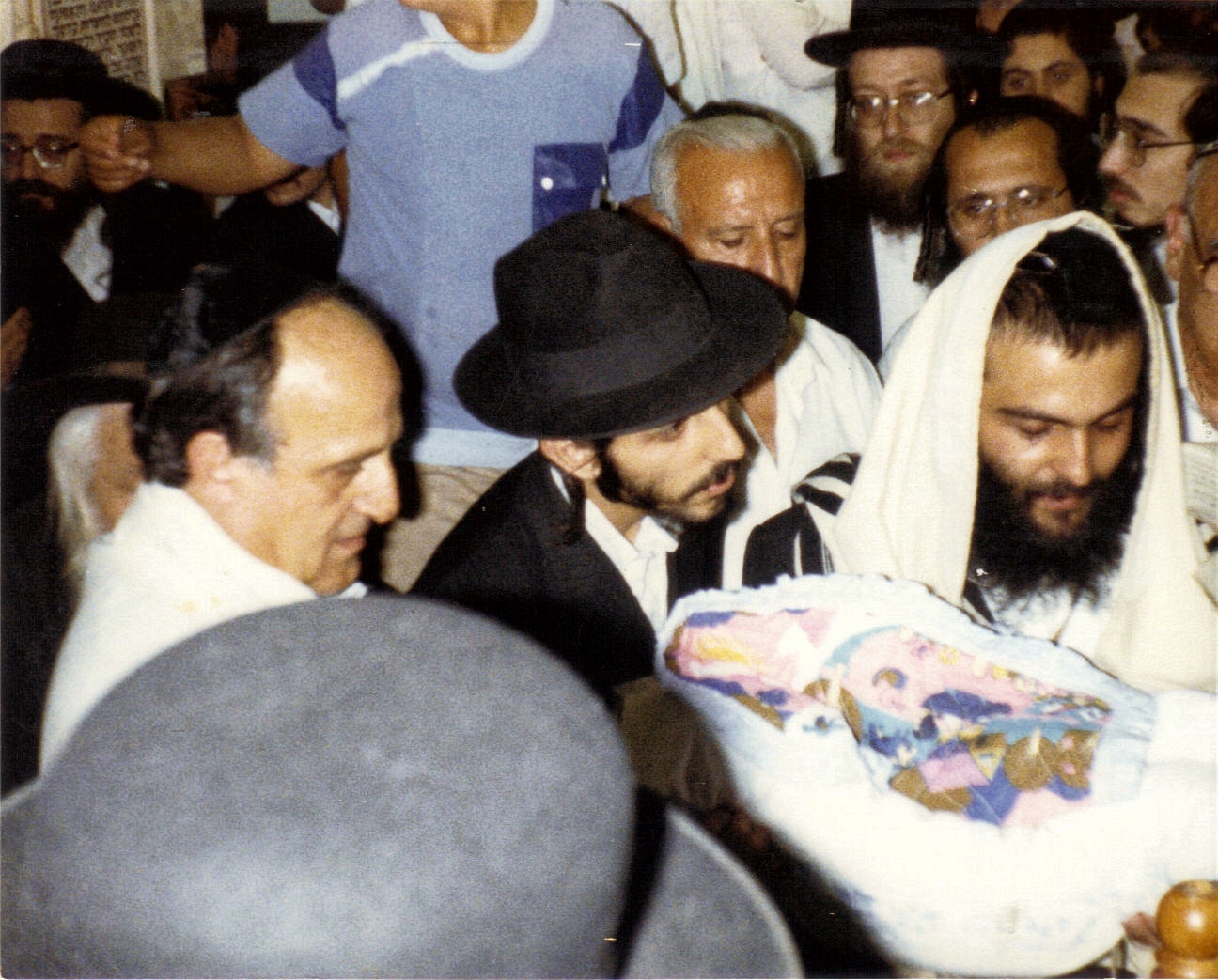 At the circumcision of his firstborn son
At the circumcision of his firstborn sonWhat about literature — did you continue writing after returning to faith?
“At first, I didn’t engage in literature at all, because I didn’t think it belonged. I felt my only task was to ‘learn how to be Jewish,’ and I devoted myself entirely to Torah study. At one point, I even became a Torah scribe. Back then, I never imagined I’d someday become a ‘plain old writer’ again.”
But about ten years later, that changed. “I began to understand that God wanted something broader and more complete from me,” Oded explains. “So I gradually returned to writing — first poetry. I published three poetry books and a book of commentary on poetry, and later moved on to prose.”
Today, he has four volumes of his well-known series “Returning Light” (Or Chozer), featuring true stories of people returning to faith, written over many years. In parallel, he has published numerous faith-based stories in the weekly Besheva and other platforms, always focusing on returning to one’s roots and the phenomenon of spiritual return in our generation.
These days, he is releasing a new book, “Moments of Light – Stories from the Notebook of a Returnee,” containing over 120 very short stories about simple moments in life that illuminate precious insights, filled with faith and divine providence, and that seek to touch upon the extraordinary phenomenon of spiritual return among the Jewish people.
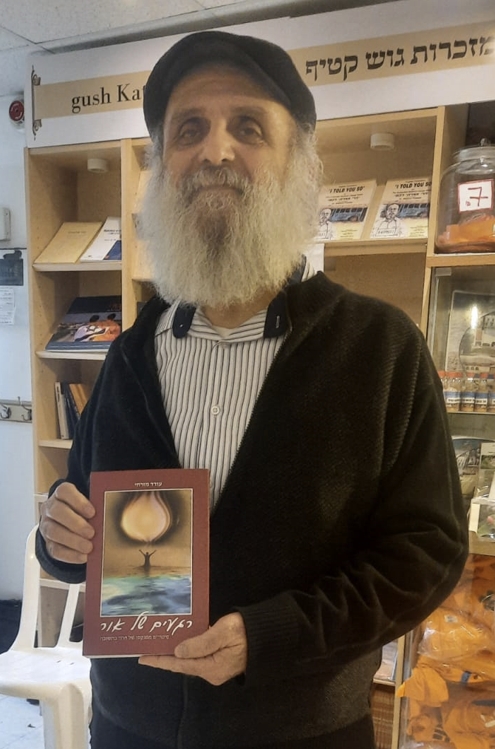 With his new book
With his new bookAre all the stories in your books true?
“That’s a question I’m often asked,” Oded replies. “The answer is that they fall into two categories. The longer stories in Returning Light are as accurate as possible. The whole idea was to present stories that actually happened, not to showcase imagination.
“The very short stories — like those in my new book, exist somewhere between reality and imagination. Some are almost entirely real; others contain just a spark of a real event, with the rest imagined. The speaking ‘I’ in most of the stories largely reflects me, but not completely. Some words were written with heart’s blood; others with a smile.
“In any case, to me, once written, all the stories are equally true. They exist in writing and in the soul of both the writer and the reader. The role of imagination is to reach a deeper truth, a sharper idea, which limited reality cannot always express. Reality gives shape to imagination, guiding it toward the idea.”
Who are your books for?
“I don’t want to sound pretentious, but I truly aim them at every Jew — including those who define themselves as secular, including family members I’m very close to. I didn’t write from a preachy stance that presents observant Jews as righteous and flawless. On the contrary, I write from the understanding that we’re all struggling — sometimes with a bit of irony, and with forgiveness for our imperfections. It’s the voice of ‘Oded the struggler’ no less than ‘Oded the encourager.’
“I believe that reflecting the truth honestly, without bias, is what allows the books to resonate with readers.”
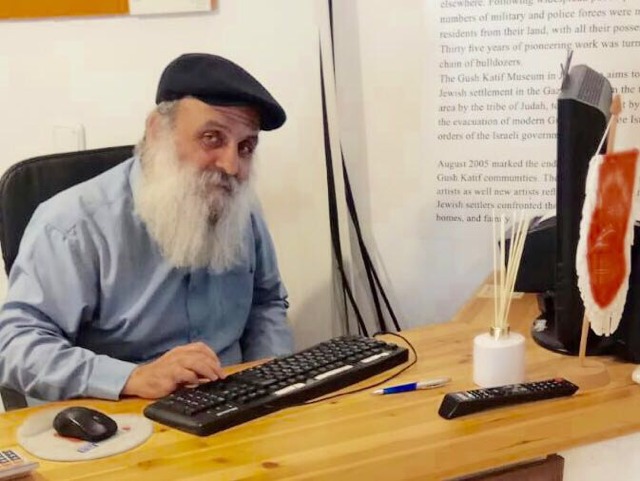 At work at the Gush Katif Museum
At work at the Gush Katif MuseumOn a personal level, after so many years, do you still feel like a baal teshuva — someone who returned to faith?
“Outwardly, I look like an ultra-Orthodox Jew of a more open style. Ultra-Orthodoxy has immense value — without it, we wouldn’t survive. But I’ll admit that there’s also a part of me that is a baal teshuva, and I’m happy about that.
“It’s clear to me that those who return to faith have a major role in influencing our generation. Rabbi Yitzchak Ginsburgh, whom I’m close to, often says that ‘those who return will take over the country,’ and he explains that their role is precisely to serve as a bridge between two worlds — and through that, to influence and even lead.
“And it’s important to emphasize: a baal teshuva isn’t only someone who was secular and became observant. Every Jew who makes a sincere self-accounting and strives to improve is, in essence, a baal teshuva. May we all merit to truly return.”

